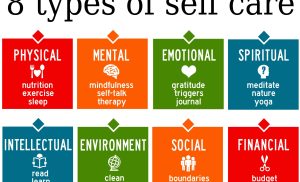How Can Practicing Gratitude Impact Stress Levels?
Do you ever find yourself feeling overwhelmed by the constant demands and pressures of daily life? If so, you’re not alone. Stress has become a common companion for many of us. But what if there was a simple way to alleviate some of that stress and bring more peace and positivity into your life? That’s where practicing gratitude comes in. By consciously focusing on the things you’re grateful for, you can shift your mindset and reduce stress levels. In this article, we’ll explore the powerful impact that gratitude can have on your well-being and stress management.

The Definition of Gratitude
Understanding the concept of gratitude
Gratitude is a powerful emotion that involves recognizing and appreciating the positive aspects of your life. It is about expressing thankfulness for what you have, whether big or small. When you practice gratitude, you shift your focus from what is lacking to what is present, which can have transformative effects on your overall well-being.
Differentiating gratitude from other positive emotions
While gratitude is often grouped with other positive emotions like happiness and contentment, it is distinct in its own way. While happiness is often based on external circumstances or events, gratitude is more focused on internal reflection and appreciation. Gratitude doesn’t require you to have everything you want, but rather, it encourages you to appreciate what you already have.
Effects of Stress on the Body
Physical symptoms of stress
Stress can manifest itself physically, resulting in various symptoms such as headaches, muscle tension, fatigue, and sleep disturbances. When you experience stress, your body’s stress response is activated, releasing hormones like cortisol that can have damaging effects on your health if not properly managed.
Psychological symptoms of stress
Stress also affects your mental well-being, leading to a wide range of psychological symptoms. These can include irritability, difficulty concentrating, feelings of overwhelm, and even anxiety or depression. Prolonged exposure to stress can significantly impact your overall quality of life and make it challenging to function optimally.
The Relationship Between Gratitude and Stress
Research on gratitude and stress
Numerous studies have explored the connection between gratitude and stress, highlighting the significant impact practicing gratitude can have on reducing stress levels. One study found that individuals who regularly engage in gratitude exercises reported lower levels of stress and depression. Another study discovered that gratitude can enhance resilience to stress, allowing individuals to bounce back more quickly from challenging situations.
How gratitude affects stress levels
Gratitude acts as a counterforce to stress by shifting your focus away from negative thoughts and experiences. Instead of dwelling on what is wrong or missing, practicing gratitude helps you recognize and appreciate the positive aspects of your life. By cultivating an attitude of gratitude, you can reframe stressful situations, finding hidden blessings or opportunities for growth. This change in perspective can significantly reduce stress levels and promote overall well-being.
Reducing Stress Through Gratitude Practices
Keeping a gratitude journal
One effective way to incorporate gratitude into your daily life is by keeping a gratitude journal. At the end of each day, take a few moments to reflect on the positive experiences, people, or things for which you are grateful. Write them down in your journal, allowing yourself to fully immerse in the feeling of gratitude. This simple practice can help shift your focus from stressors to positive aspects of your life, reducing stress levels over time.
Expressing gratitude to others
Expressing gratitude to others is another powerful way to reduce stress. Take the time to thank others genuinely and sincerely for their kindness, support, or contributions. This can be through verbal appreciation, a handwritten note, or even a small act of kindness in return. Not only does this practice foster positive relationships, but it also allows you to channel your energy towards gratitude, thus alleviating stress and promoting a sense of connection and fulfillment.
Meditating on gratitude
Meditation is a well-known practice for relaxation and stress reduction, and incorporating gratitude into your meditation routine can amplify its benefits. During your meditation session, focus your attention on feelings of gratitude, directing your thoughts towards the things you are thankful for. Allow these feelings to fill your heart and mind, and let go of any tension or stress. This practice cultivates a state of calm and contentment, making it an effective tool for reducing stress levels.

Positive Impact of Gratitude on Mental Health
Boosting overall well-being
Practicing gratitude has a profound impact on mental health. Numerous studies have shown that individuals who regularly engage in gratitude practices experience increased feelings of happiness, satisfaction, and overall well-being. By focusing on the positive aspects of your life, gratitude helps shift your perspective and encourages a more positive mindset, reducing the impact of stress on your mental health.
Enhancing resilience to stress
Resilience, the ability to adapt and bounce back from stress, is a crucial component of mental health. Gratitude plays a significant role in enhancing resilience by encouraging a growth mindset and promoting a sense of perspective. When you practice gratitude, you become more adept at finding meaning and learning opportunities in difficult situations. This ability to reframe adversity can help you better cope with stress, making you more resilient in the face of challenges.
Promoting Emotional Regulation with Gratitude
Managing negative emotions
Negative emotions, such as anger, frustration, or sadness, can fuel stress and further escalate the impact on your well-being. Gratitude provides a powerful tool for managing negative emotions by helping you shift your focus to positive aspects of your life. When faced with challenging emotions, consciously redirect your thoughts to the things you are grateful for, allowing gratitude to diffuse negative emotions and restore emotional balance.
Fostering positive emotions
In addition to managing negative emotions, gratitude also fosters positive emotions. When you practice gratitude, you tap into feelings of joy, contentment, and appreciation. These positive emotions have a direct impact on your well-being, reducing stress levels and promoting emotional regulation. By cultivating a mindset of gratitude, you create a positive emotional foundation that serves as a buffer against stress and enhances your overall emotional well-being.

Gratitude as a Coping Mechanism
Gratitude’s role in stress management
Stressful situations can often leave us feeling overwhelmed and powerless. However, gratitude can serve as a powerful coping mechanism in such times. By focusing on what you are grateful for, you gain a sense of control and agency over your life. Gratitude allows you to shift your attention away from stressors and towards the positive aspects of your situation, enabling you to cope more effectively with stress and regain a sense of balance.
Using gratitude to cope with adversity
Life is filled with adversity and challenges, and it is during these times that gratitude can truly shine. When faced with adversity, practicing gratitude helps you find silver linings and hidden blessings amidst the difficulties. By reframing your mindset and focusing on what you are grateful for, you can cultivate resilience and inner strength. Gratitude allows you to approach adversity with a more positive outlook, helping you navigate through challenging times while minimizing the impact of stress on your well-being.
Improving Relationships and Social Support
Building stronger connections through gratitude
Gratitude has the power to deepen and strengthen your relationships. By expressing gratitude and appreciation to those around you, you foster a sense of connection and create a positive social environment. When you appreciate others and acknowledge their contributions, you reinforce the bonds you share, promoting a support system that can help buffer the effects of stress. Gratitude becomes a catalyst for building stronger connections and nurturing meaningful relationships.
Receiving and providing support
Practicing gratitude not only allows you to express appreciation but also opens you up to receiving support from others. When you show gratitude towards those who have helped or supported you, you invite further assistance and build a network of social support. Having a strong support system plays a crucial role in stress management, as it provides a sense of stability and comfort during challenging times. By cultivating gratitude, you create a reciprocal cycle of support and gratitude within your relationships.
Cultivating Gratitude in Daily Life
Finding gratitude in small moments
Gratitude doesn’t always have to be centered around significant events or milestones. It can be found in the smallest of moments and everyday experiences. Take a moment to appreciate the beauty of nature, a kind gesture from a stranger, or the simple pleasures in your life. By training yourself to find moments of gratitude in your daily life, you create a mindset of appreciation that can combat stress and enhance your overall well-being.
Practicing mindfulness and gratefulness
Mindfulness is the practice of being fully present and aware of the present moment. Combining mindfulness with gratefulness can be a powerful tool for reducing stress and cultivating gratitude. Throughout your day, make a conscious effort to be fully present and to notice the positive aspects of your surroundings. Engage your senses and take in the beauty around you, savoring each experience. By practicing mindfulness and gratefulness together, you enhance your ability to experience and appreciate the present moment, fostering gratitude and reducing stress in the process.
Conclusion
Summary of the impact of gratitude on stress levels
Gratitude is a transformative emotion that has the power to reduce stress levels and enhance overall well-being. By practicing gratitude, you shift your focus from what is lacking to what is present, allowing you to reframe stressful situations and find hidden blessings. Research has shown that gratitude can boost mental health, enhance resilience to stress, and promote emotional regulation. It also serves as a valuable coping mechanism in times of adversity, improves relationships and social support, and enhances daily life by cultivating a mindset of appreciation.
Encouragement to incorporate gratitude practices
Incorporating gratitude practices into your daily routine can have a profound impact on your stress levels and overall well-being. Whether it be keeping a gratitude journal, expressing gratitude to others, or meditating on gratitude, find the practices that resonate with you and commit to incorporating them into your life. By cultivating an attitude of gratitude, you will experience the many benefits it brings, ultimately leading to a more joyful, resilient, and stress-free life. So, start today and embrace the power of gratitude.
















